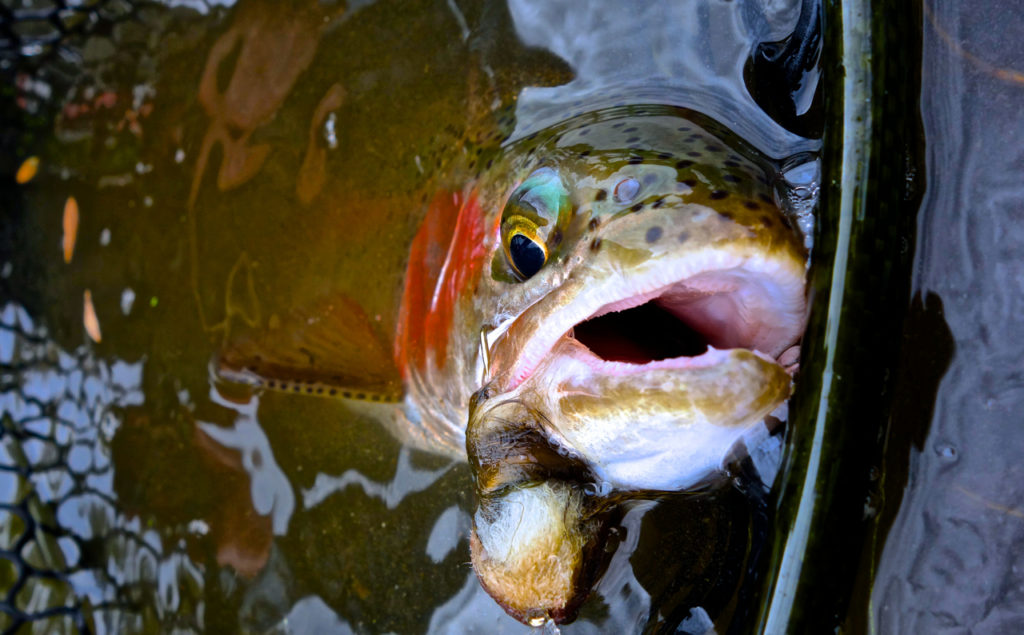The debate continues to rage on amongst scientists about whether fish are sentient creatures that feel pain. In the December 2016 issue of the journal Animal Sentience neurobiologist Brian Key, writing under the succinct title “Why do fish not feel pain?” lays out a compelling case that our finned, gilled, and scaled friends simply don’t have the brain structures to feel pain.
Human pain, he argues, happens in the cortex. That’s the region of your brain associated with complex, conscious experience and thought. It’s a complex system (even for a brain system), with a great deal of back-and-forth flow of information.
What does that mean?
The cortex doesn’t just turn a stimulus, like a prick of the thumb, directly into an action, like yanking your hand away. That would be a one-way flow of information. Stimulus-reaction.
Instead your cortex turns the sensation over. What did that feel like? It hurt. Who did it to me? That fool. What am I going to do? Prick him right back when he least expects it. Ha ha! Stimulus-experience-consideration-reaction.
Fish certainly react to things that would be painful to people, swimming or flopping to avoid them. But they lack cortices, or any other structures in their brain that might do the multi-directional pain-processing job of the cortex. Key argues that without a cortex a fish can’t feel the pain. Any behavior that looks like pain avoidance is really just the result of simple one-directional mental processes. Stimulus-reaction. Prick-flee.
Key points out that you can do things to a fish that would seem painful to a human eye, like drilling a hole in its head, without significantly impacting its behavior. You’d think that if a fish felt that overwhelming pain, it might find the experience a bit distracting.
He goes on to argue that a whole set of behaviors and experiences some researchers attribute to fish (anxiety, depression, discomfort, and so on) are really simple learning and avoidance that don’t require any conscious thought.
That humans see so much complexity in fish, in his view, seems to say more about the people than the fish. He can’t prove that fish don’t feel pain without actually living as a fish, he acknowledges, but science doesn’t offer us any reason to assume they do.
Here’s the thing though: Key’s view isn’t particularly popular among many of his colleagues. Hanna Damasio and Antonio Damasio, a team of neuroscientists whose work on pain in humans Key cites in his paper, wrote one of several commentaries picking apart his argument.
Though they don’t study fish pain, they write that Key is too simplistic in locating human pain entirely in the cortex. Yes, pain is more complex than the mere reflex that drives many simpler creatures through the world. And it is more difficult to figure out whether people without functioning cortices experience pain.
But there’s real reason to think they do, or at least experience some of the unpleasant feeling-set we call “pain,” because of processes in other regions of the brain, like the brain stem. Fish may not have cortices, but they certainly have brain stems.
There may not be enough evidence to prove fish feel pain, but Hanna Damasio and Antonio Damasio argue that Key doesn’t marshal nearly enough evidence to show that they don’t.
LINK (via: Business Insider)






